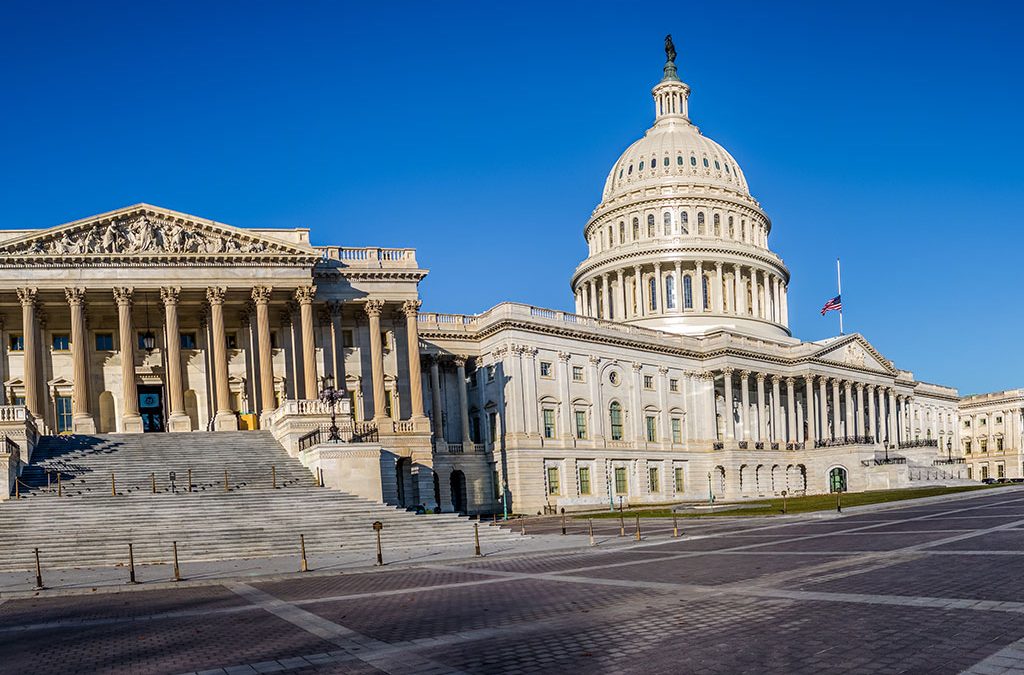Late last week, citing high inflation, Sen. Joe Manchin (D-WV) announced his hesitation to move forward with a budget reconciliation package that includes climate and energy spending and changes to the tax code. Manchin said during a radio interview that he is willing to revisit an agreement on these priorities in September, if he observes favorable trends in the July Inflation Report (more details below). Manchin said that if Democratic leadership would like a deal prior to the August recess, it would have to be a health care-focused package.
In the wake of Manchin’s interview, President Joe Biden quickly issued a press release urging Senate Democrats to abandon energy provisions completely to pursue a health care-only deal before the August recess. In that statement, President Joe Biden claimed that he would supplement congressional shortfalls with “strong executive action” to address climate change. In opposition to this sentiment, Senate Finance Committee Chairman Ron Wyden (D-OR) has publicly advocated for delaying the process to allow for consideration of an energy and tax package in September.
If Democrats choose to wait until September for a broader deal, Manchin has already outlined potential energy provisions that could be included. When discussing technologies that he believes should be incentivized, Manchin said that spending would be limited to support for proven clean technologies like transmission line upgrades, hydrogen production, geothermal production, small modular nuclear reactors (SMRs) and integrated battery storage for solar and wind facilities.
On the revenue side, Manchin said that he did not support the adoption of proposals to align the United States with Pillar 2 of the Organisation for Economic Co-operation and Development (OECD) global tax-reform framework through reconciliation, claiming that he had “taken [the proposal] off the table” (more details below).
Manchin was significantly more open to consideration of some version of a 15% domestic minimum tax in a larger deal. While he claimed the tax “makes sense” in theory, he wanted to ensure American companies that were earning tax “discounts” (deductions and credits) in ways that created jobs and promoted industry growth were not negatively affected.
Legislative Lowdown
Inflation Report. Last Wednesday, the Department of Labor (DOL) Bureau of Labor Statistics (BLS) released their much-anticipated inflation report for the month of June. The agency announced that the aggregate price of basket goods in the Consumer Price Index for All Urban Consumers (CPI-U) had risen by approximately 9.1% in comparison to June of 2021. This increase denotes the largest 12-month jump since February 1981. This number was significantly higher than both the 8.6% reported inflation for May 2022 and recent market forecasts, which had estimated the June release at sub-9%.
The CPI-U index measures a broad swath of consumer goods designed to mimic the typical spending habits of the 93% of Americans who live within a census-designated urban population center. The index is primarily compromised of items considered to be essential including food, energy, shelter and medical care services.
In the June report, the greatest driver of inflation was attributed to the 41.6% increase in energy costs, and to a lesser extent, the 10.4% rise in the food index. The most significant price spike stemmed from a nearly 60% increase in gasoline prices since June 2021. All other goods rose in price by a comparatively mild average of 5.9% in the same 12-month period.
Read more about the Legislative Lowdown.
Global Getdown
GILTI and Other International Tax Provisions on Life Support. In the interview with West Virginia radio host Hoppy Kercheval on Friday, July 15, Sen. Joe Manchin (D-WV) announced he would not support any legislative proposals that include climate or energy provisions or raise taxes on individual Americans or corporations, although he reserved the possibility of revisiting such proposals after the July inflation data is released in mid-August.
His statement is particularly damaging to the Biden administration’s efforts to align the United States with the two-pillar global-tax agreement that Treasury Secretary Janet Yellen brokered last year through the OECD. A key component of that effort is modifications to the U.S. Global Intangible Low-Taxed Income (GILTI) rules, which would move the United States closer to the 15% global minimum tax envisioned by Pillar Two. Manchin stressed in the interview that he could not support the administration’s global minimum-tax plan at this point because he believes “the rest of the countries won’t follow, and we’ll put all of our international companies in jeopardy, which harms the American economy.”
Schumer’s decision on the path for reconciliation will be consequential to the Biden administration’s global tax-reform goals. Under the congressional budget rules, the reconciliation bill can only be used once—in this case, for health care provisions in July or a broader package that could include GILTI modifications potentially in September. The latter option comes with significant uncertainty since there currently is no agreement on the bill, a short time frame before reconciliation expires on Sept. 30, and just weeks before the midterm elections.
Our thanks to Brownstein Hyatt Farber Schreck for this report. Click here to read the full Taxation & Representation report, including the Russ-o-Meter.
Family Enterprise USA advocates for American Family business. We help family businesses communicate their challenges and contributions to American economic freedom to Legislators. We represent all American family businesses; not just specific industries and provide research to enhance the opportunity for success. We help family businesses continue to establish their unique business legacy. Family Enterprise USA is a 501(c)(3) non-profit organization.. Family foundations can donate.
@FamilyEnterpriseUSA @PolicyAndTaxationGroup @DitchTheEstateTax #FamilyBusiness #Business #SmallBiz #EstateTax #Deathtax #CapitalGainsTax #StepUpInBasis #Taxes #gifttax #Generationskippingtax #InheritanceTax #repealestatetax #promotefamilybusinesses #taxLegislation #AdvocatingForFamilyBusinesses #incometax #Generationallyowned #Multigenerationalbusiness #taxes #taxseason #federaltaxpolicy #FamilyEnterpriseUSA #PolicyAndTaxationGroup #DitchTheEstateTax

